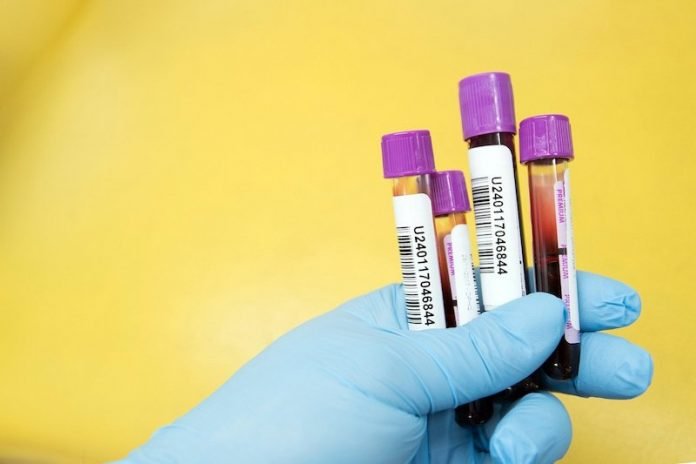
In a new study, researchers found biomarkers in the blood that are predictive of severe COVID-19 infection.
The results extend understanding of the pathophysiology and clinical progress of COVID-19.
They may help identify the disease early during the course of infection when people are most at risk of severe conditions.
The research was conducted by a team at Fudan University and elsewhere.
In addition to pneumonia, some patients have also developed severe gut and/or heart symptoms as well as brain symptoms after COVID-19 infection.
This is possible because the ACE 2 receptor used by the COVID-19 virus for cell entry is found in other organs besides the lungs, including the heart, liver, kidney, pancreas, small intestines, and also the CNS (Central Nervous System).
In the study, the team found strong molecular alterations in patients with COVID-19, especially in severe cases.
They tested 83 individuals in three groups, 16 severe cases, 50 mild cases, and 17 healthy controls without the virus.
The researchers found there were big differences between mild and severe cases in various immune markers, such as type 1 interferon and inflammatory cytokines, which were elevated in the latter, while the former showed robust T cell responses that presumably helped arrest disease progression.
An unexpected finding was the existence of strong links between the multi-omics data and classical diagnostic blood or biochemical parameters.
There was a strong downregulation in the tricarboxylic acid or “Krebs” cycle (TCA) and glycolytic pathways used to release stored energy in both mild and severe patients compared to healthy controls.
Conversely, well-known host defense pathways, such as the T cell receptor signaling pathway, were elevated in patients with COVID-19.
Another important finding was an association between viral load and disease prognosis in severe COVID-19 patients.
Unfortunately, six of the patients with severe symptoms died and they had earlier on admission to hospital registered SARS-CoV-2 RNA loads in the throat much higher than those who survived.
Finally, specific biomarkers of COVID-19 outcomes were found and used to create prognostic classification models.
The team says the findings could help identify patients who may develop severe symptoms in advance so that treatments can be used early.
One author of the study is Yan‐Mei Chen.
The study is published in The EMBO Journal.
Copyright © 2020 Knowridge Science Report. All rights reserved.



